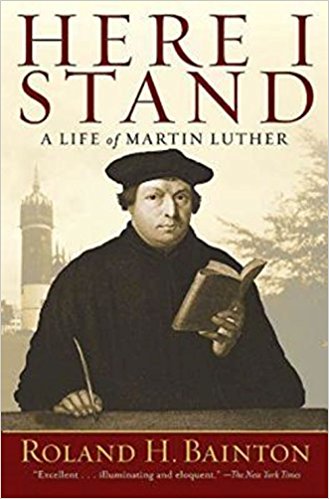|
'"Most serious of all was Luther's reduction of the mass to the Lord's Supper. The mass is central for the entire Roman Catholic system because the mass is believed to be a repetition of the Incarnation and the Crucifixion. When the bread and wine are transubstantiated, God again becomes flesh and Christ again dies upon the altar. This wonder can be performed only by priests empowered through ordination. Inasmuch as this means of grace is administered exclusively by their hands, they occupy a unique place within the Church; and because the Church is the custodian of the body of Christ, she occupies a unique place in society. "Luther did not attack the mass in order to undermine the priests. His concerns were always primarily religious and only incidentally ecclesiastical or sociological. His first insistence was that the sacrament [p139] of the mass must be not magical but mystical, not the performance of a rite but the experience of a presence. This point was one of several discussed with Cajetan at the interview. The cardinal complained of Luther's view that the efficacy of the sacrament depends upon the faith of the recipient. The teaching of the Church is that the sacraments cannot be impaired by any human weakness, be it the unworthiness of the performer or the indifference of the receiver. The sacrament operates by virtue of a power within itself ex opere operato. In Luther's eyes such a view made the sacrament mechanical and magical. He, too, had no mind to subject it to human frailty and would not concede that he had done so by positing the necessity of faith, since faith is itself a gift of God, but this faith is given by God when, where, and to whom he will and even without the sacrament is efficacious; whereas the reverse is not true, that the sacrament is of efficacy without faith. 'I may be wrong on indulgences,' declared Luther, 'but as to the need for faith in the sacraments I will die before I will recant.' This insistence upon faith diminished the role of the priest who may place a wafer in the mouth but cannot engender faith in the heart. "The second point made by Luther was that the priest is not in a position to do that which the Church claims in the celebration of the mass. He does not 'make God,' and he does not 'sacrifice Christ.' The simplest way of negating this view would have been to say that God is not present and Christ is not sacrificed, but Luther was ready to affirm only the latter. Christ is not sacrificed because his sacrifice was made once and for all upon the cross, but God is present in the elements because Christ, being God, declared, 'This is my body.' The repetition of these words by the priest, however, does not transform the bread and wine into the body and blood of God, as the Catholic Church holds. The view called transubstantiation was that the elements retain their accidents of shape, taste, color, and so on, but lose their substance, for which is substituted the substance of God. Luther rejected this position less on rational than on biblical grounds. Both Erasmus and Melanchthon before him had pointed out that the concept of substance is not biblical but a scholastic sophistication. [p.140] For that reason Luther was averse to its use at all, and his own view should not be called consubstantiation. The sacrament for him was not a chunk of God fallen like a meteorite from heaven. God does not need to fall from heaven because he is everywhere present throughout his creation as a sustaining and animating force, and Christ as God is likewise universal, but his presence is hid from human eyes. For that reason God has chosen to declare himself unto mankind at three loci of revelation. The first is Christ, in whom the Word was made flesh. The second is Scripture, where the Word uttered is recorded. The third is the sacrament, in which the Word is manifest in food and drink. The sacrament does not conjure up God as the witch of Endor but reveals him where he is." (Chapter VIII, The Wild Boar in the Vineyard, pp. 139-140)
0 Comments
Leave a Reply. |
Bio
teacher, writer, Archives
August 2022
Categories
All
|




 RSS Feed
RSS Feed